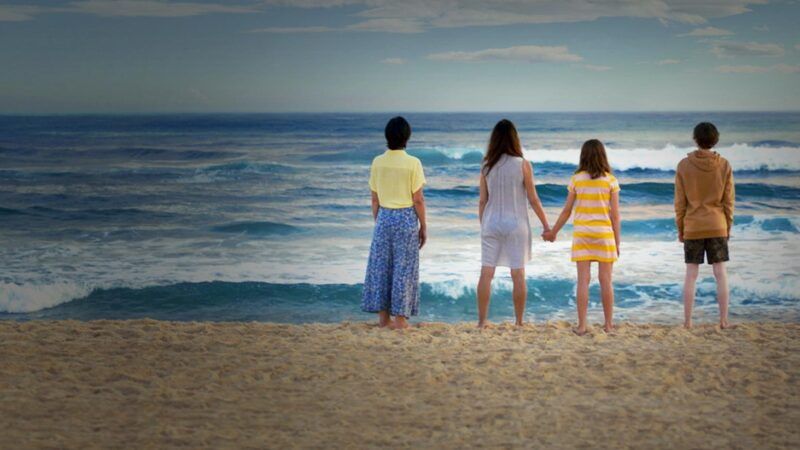The End Offers Doom and Gloom Without Respite
There is more to Showtime's The End than the ways and means of self-destruction, but perhaps not much.

The End. Showtime. Sunday, July 18, 8 p.m.
It's difficult to know what to say about Showtime's new miniseries The End. Perhaps we could start by saying what it is not: connected, in any way, to the 1978 comedy by the same name in which a terminally ill Burt Reynolds tries to kill himself with the help of Dom DeLuise. Except, it kind of is. Not that DeLuise or Reynolds are around, or even their characters. But there are more sick people trying to kill themselves than you can shake a barbiturate-loaded hypodermic at.
Sick people, depressed people, crazy people, and—overwhelmingly—inept people. There are two (or maybe three—did that old lady deliberately set her house on fire before taking the pills and then jumping out a second-story window, or was it just an accident?) botched suicide attempts in the first three minutes. When the banged-and-burned-and-boozy lady waves her do-not-resuscitate wristband at the EMT who picks her up off the ground with a mere broken arm for all her trouble, he snippily dismisses her: "You're still conscious." There are rules, you know.
The End, an Australian-made series that aired last year elsewhere in the English-speaking world, is sometimes grimly funny, but often just grim. At the center of its collective death wish is a tri-generational family of personalities for whom troubled seems ever so mild a descriptor. Grandma Edie (Harriet Walter, Belgravia), the star of that first sequence of muffed attempts, is both depressed (she's just discovered a diary left behind by her husband that describes in detail his profligate cheating on her even as she nursed him through a series of debilitating and ultimately fatal diseases) and cancer-ridden (double-mastectomy so far, with more to come).
Her daughter Kate (Frances O'Connor, Mansfield Park), who fled the entire continent of Europe to escape this martinet mother, now has reluctantly brought her to Australia to live (or not; the first thing Edie does upon arrival is to check out the collection of steak knives in the kitchen) in a nearby nursing home. Keeping an eye on her mother is just like work for Kate, a palliative-care hospice nurse whose feeble patients are constantly trying to put an end to their own suffering with pills and nooses.
Kate's children are also a lethal handful. Her transgender son (Morgan Davies, The Girlfriend Experience), who only recently concluded he wasn't a lesbian, has tried to kill himself at least once and even in playful moods is wont to drop psilocybin, climb telephone poles, and fall off. ("It wasn't an attempt," he insists.) His younger sister Persephone (Australian TV actress Ingrid Torelli) is the family nonconformist, a jolly girl who scores as a borderline sociopath in those magazine personality quizzes and spends her spare time organizing her classmates to stay out of P.E. by faking mass menstruation.
There is more to The End than the ways and means of self-destruction, but perhaps not much. A lot of conversations revolve around poisons and how to take them without leaving yourself a vegetable; or whether it's really a good idea to kill yourself without ever having experienced an orgasm—or, for that matter, where one could be obtained after all these years. (Demographically, the nursing home is wildly imbalanced in favor of superannuated cougars.)
The ethics of assisted suicide are an ever-popular topic, so much so that The End occasionally resembles an after-school special on the subject. And not a particularly informative one: When Kate refuses to help one of her terminal patients facing an especially difficult death from a loathsome breathing disorder, the woman's husband scolds her that "you wouldn't do that to a dog." Retorts Kate: "I hate that argument! She's not a dog." No, but that's not much a rebuttal, either.
The central characters do nose a bit around the issues of mothers and daughters, including the question of whether Kate's despotic upbringing by Edie has led Kate to a too-indulgent approach to her own children. But in The End, all roads seem to lead to the necrotorium. "I want to be dead," Edie snaps at Kate, "because I can't stand being alive knowing that I wasted all of it." As happens frequently when The End ponders the question of what makes life worth living, the rest is silence.


Show Comments (8)